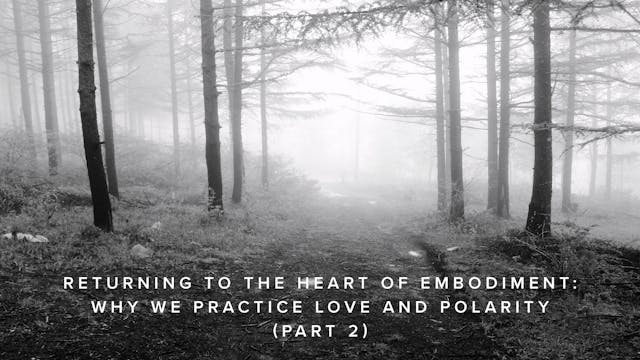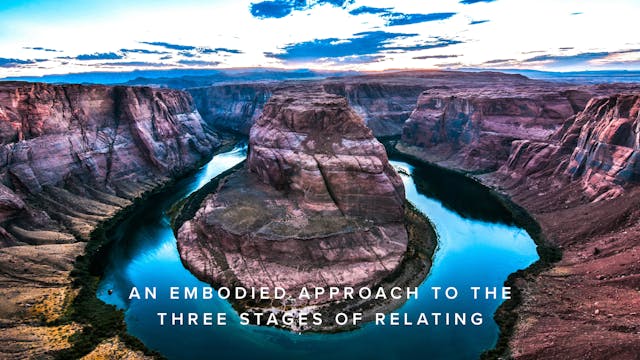Teaching - From Guarded to Open Releasing the Body’s Armor
For the Feminine: Teachings
•
19m
You may have heard the phrase “the body keeps the score”—a reminder that our past experiences, especially trauma, are held not just in our minds, but in the tissues, posture, and breath of our bodies. In a similar way, the body also takes the shape of our inherited and conditioned patterns—protecting us, guarding us, and bracing us against pain we once knew.
Over time, these shapes become familiar. They show up in the way we close off, collapse, tense, or armor ourselves in response to life and love. But when we bring awareness to the shapes our body takes—when we notice how we physically embody our old stories—we gain the power to choose something new.
In this 20-minute compilation from Fierce Love (Austin, 2024), John guides us into a deeper recognition of the protective patterns our bodies hold—and how to gently shift into more open, responsive, unguarded shapes. This teaching is a call to live and love from the truth of the moment, not the wounding of the past.
If you are ready to soften the armor and embody a shape that is more available to love, this teaching offers a clear and embodied path forward.
Up Next in For the Feminine: Teachings
-
Teaching-Returning to the Heart of Em...
In Part 1 of this teaching, John explored the natural tension between how we practice and why we practice—how easy it is to get lost in theory, or to feel disconnected from the deeper heart of embodiment when life’s demands pull us away.
In Part 2, we continue this exploration, deepening into ho...
-
Teaching-Returning to the Heart of Em...
Have you ever found yourself questioning why you practice? Maybe you’re steeped in theory but struggling to return to the mat, or perhaps the demands of life have pulled you away from the depth you once felt in your practice. It’s natural to lose sight of the balance between the way—how we practi...
-
Teaching - An Embodied Approach to th...
In his book Intimate Communion, David Deida presents a structure for relationships based on three stages of relating: the first stage centers on self—"What do I need?"; the second on mutuality—"What do we both need?"; and the third on surrender—"What does Love itself ask of us?" While this model ...



